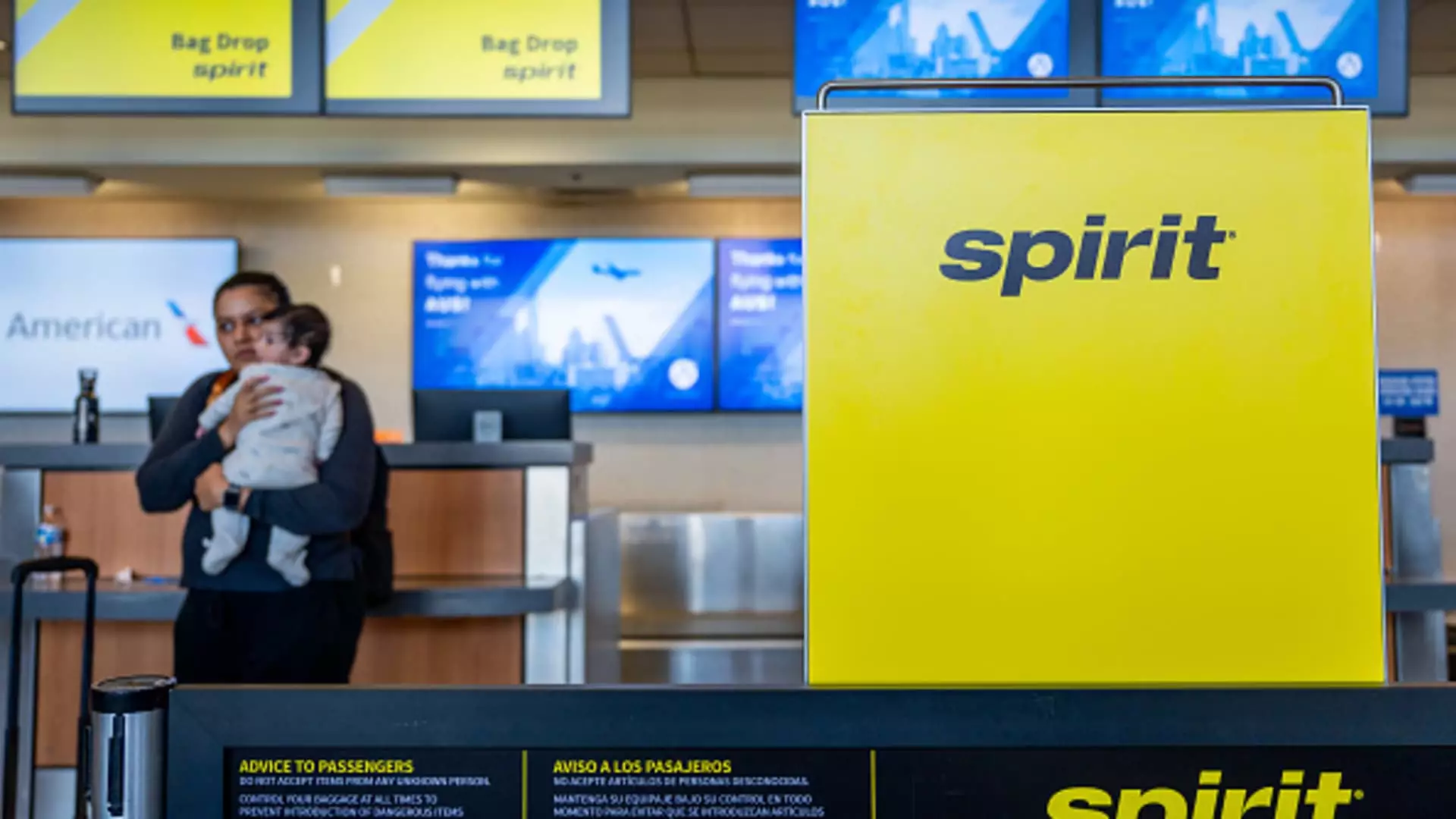In a significant twist representing the evolving landscape of the airline industry, Spirit Airlines has filed for Chapter 11 bankruptcy protection, marking a first for major U.S. passenger carriers since the American Airlines bankruptcy filing over a decade ago. The low-cost airline, known for its no-frills business model, is not shuttering its operations but rather seeking a breathing space to reorganize its financial commitments. This maneuver aims to stabilize its financial situation and maintain operations amidst an uphill battle that has intensified following the COVID-19 pandemic.
Spirit Airlines’ woes are far from new; the carrier had been losing money since 2019. However, the challenges magnified post-pandemic, as operational costs surged and aircraft were grounded due to an ongoing engine recall predicament. The airline’s plans to expand through an acquisition bid with JetBlue Airways were thwarted by a federal court ruling, further compounding its financial distress. As a result, Spirit found itself struggling to manage over $1.1 billion in debt payments that loomed due next year, with a crucial deadline approaching in its credit-card processing agreements.
To combat these financial challenges, Spirit announced it had struck a preliminary deal with major bondholders to facilitate a streamlined bankruptcy filing. The airline aims to emerge from Chapter 11 by the first quarter of 2025, signaling a potential turnaround for the cash-strapped carrier.
For travelers, the prospect of Spirit Airlines filing for bankruptcy raises intricate questions about flight availability, customer service, and potential schedule alterations. Industry analysts like Henry Harteveldt suggest that while Spirit is likely to maintain operations through the lucrative holiday travel season, customers must stay vigilant for any schedule changes or personnel cuts that could arise from the restructuring process. Such changes might include layoffs or reductions in the fleet, which could undoubtedly affect the flying public.
While Ted Christie, Spirit’s CEO, has attempted to reassure customers that they can continue to book flights normally, the reality post-bankruptcy could complicate matters. The Department of Transportation (DOT) warns that under such circumstances, receiving refunds for canceled flights may become more difficult. Travelers whose flights are canceled or significantly altered may not receive immediate cash refunds, as the airline could temporarily restrict refunds to stabilize finances.
As the situation develops, travelers are urged to exercise caution in their booking decisions. Utilizing credit cards for ticket purchases provides additional protection, as they offer features allowing for potential compensation in line with the Fair Credit Billing Act if the airline defaults on refunds. It might also be wise to consider refundable tickets with other carriers, although these options can come at a premium price.
In light of the challenging circumstances, purchasing travel insurance could also offer a safety net for customers with prepaid expenses at risk of being disrupted due to the airline’s restructuring processes. However, the actual coverage and effectiveness of such insurance remain to be seen.
Spirit Airlines anticipates that the Chapter 11 process will ultimately enable it to emerge as a leaner, more efficient airline. In the broader context, restructuring could lead to other airlines absorbing portions of Spirit’s assets, as competitors look to fill gaps in their operational capacity, particularly in the budget-travel sector which has witnessed fluctuating demand.
Additionally, the failed merger attempt between Spirit and Frontier may reignite interest in collaboration between these or other low-cost carriers in the near future. The current administration may prove more favorable toward consolidations in the industry, potentially benefiting both Spirit and its potential merger partners in the long run.
While Spirit Airlines’ Chapter 11 filing is a challenging chapter in its story, it presents an opportunity for the carrier to restructure and reposition itself in an ever-competitive marketplace. For customers and stakeholders alike, navigating this transitional period will be paramount to understanding the future trajectory of one of the industry’s enduring budget icons. As they weather this storm, travelers must remain vigilant and informed to safeguard their travel plans.



Leave a Reply